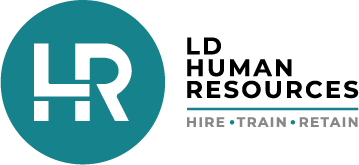By Luisa De Jesus, CHRP, CHRL
Emotional Intelligence, or “EQ,” is the ability to understand, use and manage your own emotions in positive ways to reduce stress, communicate effectively, empathize with others and overcome challenges in order to diffuse conflict. Studies have shown that EQ has become more important than IQ in many situations. With this in mind, a key question for employers is: How can companies better cultivate emotional intelligence within their organization?
To help answer this question and more, our Founder and President, Luisa De Jesus sat down with Teresa Quinlan. Teresa is a Coach, Leadership Specialist, Master Facilitator and Speaker who builds emotionally intelligent organizations. She is an advocate for exceptional performance that is a direct result of each individual knowing how to be personally responsible for using their EQ in reaching their highest potential.
Q&A with Teresa Quinlan: How to Build Emotionally Intelligent Organizations
1) It has been long thought that IQ is the most important factor in determining the future success of a person. In recent years, studies have shown that IQ only determines about 20% of success, and Emotional Intelligence, or EQ, plays a larger role. Do you believe this to be true?
Yes. We’ve seen it happen throughout our adult lives. We’ve seen the high school student who had the best grades in school become a CEO and not meet expectations because they were unable to connect with people. On the other hand, we’ve seen those “social butterflies” who can get along with just about anyone, end up in top leadership positions with hundreds of employees reporting to them.
This is often because when our EQ is not developed, our emotions get in the way, and we behave really poorly. We use emotions as directives for how we’re supposed to be behaving, resulting in toxic behaviour. This behaviour can be identified as bullying, judgment, fear-driven, or frustration-driven. All of these difficult emotions show up, and we rub people the wrong way, pushing them away before they find out how smart we are. They don’t want us on their teams or projects, and they certainly don’t want us making decisions.
2) Give us an idea of what an emotionally intelligent organization looks like. How does it stand out?
The first thing that is very different, is the individual ownership for how one shows up to work. An emotionally intelligent organization supports every individual’s ability to show up fully and completely, and to claim that responsibility for their wellbeing and performance. Even when someone is not able to show up fully and completely—because life happens sometimes—the emotionally intelligent organization has support in place. This support starts with their executive leadership, and exists in management, employee assistance programs, and even meditation rooms.
The emotionally intelligent organization has these systems and processes in place, and they ensure that everyone in the organization is emotionally intelligent. You can’t just have an executive team that’s emotionally intelligent and expect everyone else to be. That toxic behaviour can still exist within the organization, even if it’s just “one bad apple” that “spoils the whole bunch.” This can negatively impact motivation, creativity and innovation.
In emotionally intelligent organizations, when someone is demonstrating emotional distress, that is given priority before any conversation around strategy, sales, and profit. Instead of sticking to the topic, they stop, and they talk about what is happening with the individual. They resolve that first, so that they can get to the other stuff. If we can’t resolve the emotional disruption, then we can’t access our intellect, leading us to make bad decisions that tarnish our relationships.
3) Do you believe that creating an emotionally intelligent organization positively impacts retention? If so, how?
Yes. An emotionally intelligent organization can only be built on ensuring that everyone is emotionally intelligent. The difference between an individual with emotional intelligence and without, is their own level of well-being and happiness. This is because an emotionally intelligent individual has personal ownership over their well-being and performance. When I am creating positive, emotional experiences, then I am more creative and motivated, and it is much easier for me to find my flow. When we look at retention, and ask why people stay at an organization, it’s often because they have the capacity and opportunity to build these experiences. So, if as an individual I’m doing that, and if as an organization we’re providing that opportunity, then people are going to be self-actualizing in their workplace. This positively impacts retention in a very big way: an emotionally intelligent organization has four times greater retention and engagement than one that is not.
4) What can employers do now to start building that emotional intelligence in their organization today?
The key is to start the conversation. You may want to contact a professional like myself who understands how organizations, leadership and individuals need to operate. Having a coach or emotional intelligence practitioner guide the organization is critical. However there needs to be an intentional plan, because emotional intelligence truly is a multi-year commitment. It requires transforming behaviours, processes, procedures and people.
5) Where can readers connect with you?
You can check out our website at: www.iqeqtq.com and email me at teresa@iqeqtq.com. You can also follow me on LinkedIn: www.linkedin.com/in/teresaquinlan12.
At LD Human Resources, we believe that your people are your most valuable asset. Taking the time to set-up an effective performance management structure ensures that your team has a foundation for success within your company.
To learn more about how you can optimize your performance management, be sure to schedule a free consultation with us by clicking on the button below.
About the Author

As the Founder and President of LD Human Resources, Luisa is a highly motivated and results-driven human resources professional with over 20 years’ experience in HR. Luisa is a Certified Human Resources Professional and holds a BA from the University of Toronto. She also graduated with honours, obtaining her Human Resources Management certificate in 2010.
Luisa’s expertise spans professional and financial services, construction, travel and tourism, IT, not-for profit and retail. Her key strengths include: strategic consulting; performance management, succession planning; recruitment and employee relations; organizational development and learning; and, compensation and benefits. Luisa is committed to high professional standards that link HR best practices to business objectives, delivering results within changing environments. She is a proud mother of two strong-minded young girls, and an advocate for mental health and wellness.
